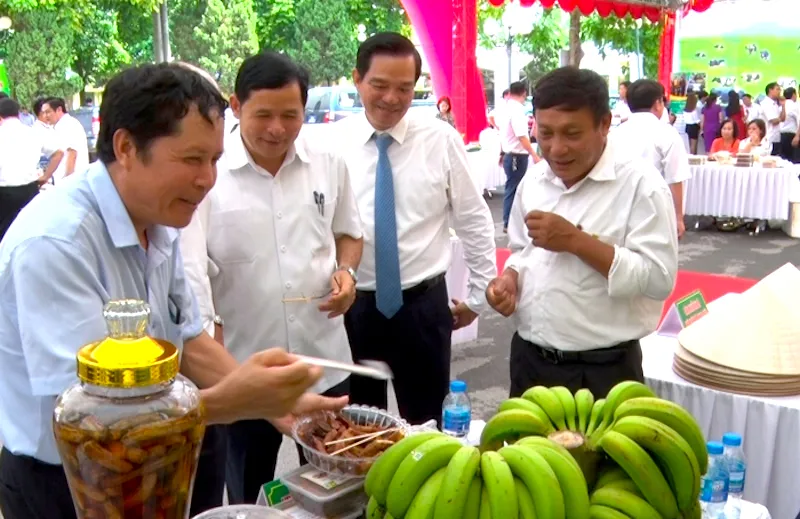Hanoi strives to export 30% of its annual banana output in 2021-25
The city plans to restructure banana farming towards added value and sustainable development.
Hanoi strives to export 30% of its total annual output of bananas every year during 2021-25, according to the latest decision by the municipal People’s Committee.
| Hanoi strives to export 30% of its total annual output of bananas each year during 2020-2025. Photo: Dieu Thu |
Under the Decision No. 5472 marking plans for the production and export of bananas in the next five years, released on December 7, Hanoi will keep its scale of 3,200 ha of banana unchanged, but focus on quality improvement.
The plan is expected to contribute to the city's agricultural restructuring with a view to increasing added value and sustainable development.
During such the period, Hanoi will allocate a total of VND227 billion (US$9.8 million) for the plan's implementation. Of the amount, VND98.6 billion ($4.2 million) will be sourced from the city’s budget, the reciprocal capital from organizations and individuals will be more than VND178.3 billion ($7.7 million).
By 2025, the municipal Department of Agriculture and Rural Development in coordination with the people's committees of districts and relevant sectors will focus on expanding new plantations and replacement areas by up to 450ha with varieties of bananas such as Cavendish and Williams.
The department will train 3,950 people in techniques and management of banana farming, applying the banana cultivation process coincided with VietGAP and GlobalGAP standards and improving water-efficient irrigation systems in order to meet the domestic consumption and export standards.
The plan also consists of building four large-scale banana farms and building up collective banana brands.
The municipal People's Committee sets a target to have banana planting areas meeting one or two global traceability standards (OTAS) for exporting to China by 2025. It also strives to have 60-80% of total areas being granted the certificate of qualified food safety.












